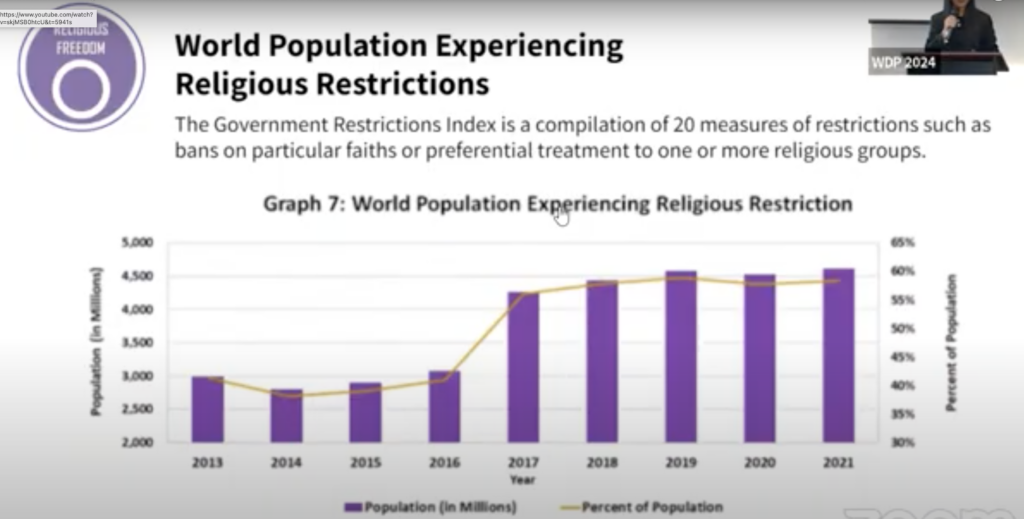
Just before World Day of the Poor, Fordham University updated its Pope Francis Global Poverty Index (FFI), noting that the poor’s enjoyment of religious freedom is increasingly threatened, with more than half the world’s population under some sort of restriction.
Held at the Church Center for the United Nations on First Avenue in Manhattan, more than 100 academics, graduate students, and representatives of charities including Caritas Internationalis and Catholic Relief Services attended the World Day of the Poor event on Friday, November 15.
A measure of material and spiritual well-being
The Fordham Francis Index (FFI), launched in 2016, is a comprehensive poverty measure inspired by Pope Francis. It uniquely uses both material and spiritual metrics, using access to seven primary indicators to assess poverty and overall well-being: food, water, housing, education, gender, religious freedom, and employment.
In opening remarks, Ciara Hogan, attaché of the Permanent Observer Mission of the Holy See to the United Nations, addressed the issue of water, and access to it.
“The global water crisis exacerbates poverty, driving cycles of illness, hunger, and deprivation. Pope Francis affirmed in Laudato si’ that access to safe, drinkable water is a basic and universal human right, one that is essential to life and the exercise of all other human rights. And yet, for many around the world, the lack of clean water and sanitation means a daily struggle against preventable diseases and an increased vulnerability to poverty,” Hogan said.
Religious freedom a global concern
Professor Henry Schwalbenberg, Ph.D., director of the graduate program in international political economy and development (IPED) at Fordham University then presented 2024’s FFI findings, along with Ana Barragan and Genevieve Connell, both members of the Fordham IPED MA class of 2025.
“The recovery from the pandemic that we observed last year in reducing the global poverty gap may have stalled,” Schwalbenberg said. While some progress was made in addressing the basic material needs of the poor, “We observed no significant progress in the poor’s access to adequate housing, education, and gender equality. And on the alarming side, we saw continued deterioration in the poor’s access to food and religious freedom.” The 2024 FFI highlighted that almost 60 percent of the world’s population is subject to some form of religious persecution, a trend that began in 2016 and remained steady since then. Countries in Asia and North Africa face the greatest restrictions on religious freedom, the report said.
Water management requires a holistic approach
A final presentation by Lorie Pearson, senior technical director, food security, and climate change for Catholic Relief Services focused on the larger impact that access to clean water services has on communities and affects their prospects of rising out of poverty.
Pearson pointed to the management of water resources as being key to preventing environmental degradation and preserving effective agriculture. Agricultural runoff and sediment are responsible for the pollution of 70 percent of the pollution of freshwater resources globally, she cited as a statistic.
“We saw from our own programming that we were addressing the health of the soil and land degradation, we were having an enormous impact on food security, on climate resilience, and on water,” Pearson said.
“We have to work together on agriculture and on water to address this as a single, interconnected issue,” she said.

